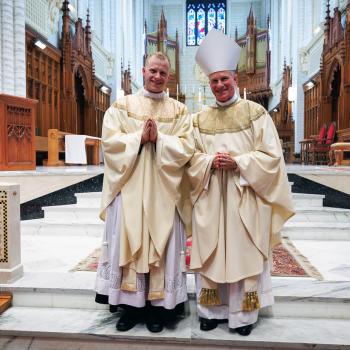 Headlines around the world this week have reported that Irish broadcaster RTE obtained a 1997 letter from the Vatican that instructed Irish bishops not to report child sex abuse by priests to the police. According to the letter, "the situation of ‘mandatory reporting' gives rise to serious reservations of both a moral and a canonical nature."
Headlines around the world this week have reported that Irish broadcaster RTE obtained a 1997 letter from the Vatican that instructed Irish bishops not to report child sex abuse by priests to the police. According to the letter, "the situation of ‘mandatory reporting' gives rise to serious reservations of both a moral and a canonical nature."
Survivors are calling this the "smoking gun" that proves the Vatican's complicity in the abuse cover-up. They are right, but that is not the whole story with this letter.
Absolutely no one should be surprised by this direct expression of what everyone should have known already: the Vatican has orchestrated a conspiracy of secrecy about child abuse for decades, if not centuries.
Once the practice of covering up the identities of priest child sex abusers was established beyond a doubt in Boston, then incrementally, the entire United States, and then Europe, and Mexico, and South America, could anyone actually believe the cover-ups were a colossal coincidence? When you have a top-down hierarchical institution with an ever-repeating pattern of abuse/cover-up/move around/abuse/cover-up/move around, the resulting secrecy is no accident.
Jeffrey Lena, who represents the Vatican in the United States clergy sex abuse cases, disputed the notion that the letter required bishops to disregard civil reporting requirements. In fact, there were no such requirements in Ireland at the time, so his defense is thin at best.
The public is being seriously misled on the Vatican's position on reporting then and now. The Vatican's official position is that it urged cooperation with authorities then and that it requires reporting now, so it's all good. Right?
Definitely not. The Vatican's policy, as Lena indicates, which was reconfirmed in the last year as part of the Vatican's "new" measures to protect victims, is to require reporting only if civil law requires it. No voluntary reporting to the police.
But their position is much darker than it appears on the surface. Not only has the Vatican only required reporting if the civil law mandates it, its lobbyists have lobbied hard to make sure that state laws do not require clergy to report. Similarly, their lawyers have argued ad infinitum in courts that they should not be required to report, raising silly First Amendment arguments and every technicality they can.
Let me say that again. The Catholic Conferences and the lawyers for the dioceses routinely argue that clergy should be exempt from reporting, generally and in specific cases.
They will tell you that the reason they lobby against reporting is to protect the sanctity of the confessional. But it is out of character for them to limit their arguments in the legislatures or the courts to a bona fide confessional. Everything is a "confession" for them, including discussions about child sex abuse between priests and their superiors way outside the confessional box. So the sum total of their "reporting policy" is to avoid reporting in as many instances as they possibly can. All the while, they are paying lip service to reporting. This letter is a smoking rocket launcher.
The rest of the letter deserves attention as well. If perhaps you are an incurable optimist who has been giving the benefit of the doubt to the Church, I think you would be interested in this paragraph farther down the letter:
Since the policies on sexual abuse in the English speaking world exhibit many of the same characteristics and procedures, the Congregation is involved in a global study of them. At the appropriate time, with the collaboration of the interested Episcopal Conferences and in dialogue with them, the Congregation will not be remiss in establishing some concrete directives with regard to these policies.
This is the most stunning part of the letter to me. First, they started working on "concrete directives" in 1997? I have nothing but questions about this. I wonder what directives they have considered over the last fourteen years—certainly not mandatory reporting to the authorities. Nor have they shut down their "treatment centers" to which they send their priest perpetrators, or been willing to release records of claims against priests without civil litigation.
Given the resources they waste on trying to halt legal reform for child sex abuse victims, I'm wondering if one of the concrete directives was to ensure that all victims of child sex abuse be treated just as their victims have been—manacled by the law and ignored by the culture. Nothing like a level playing field to make everyone feel better.





